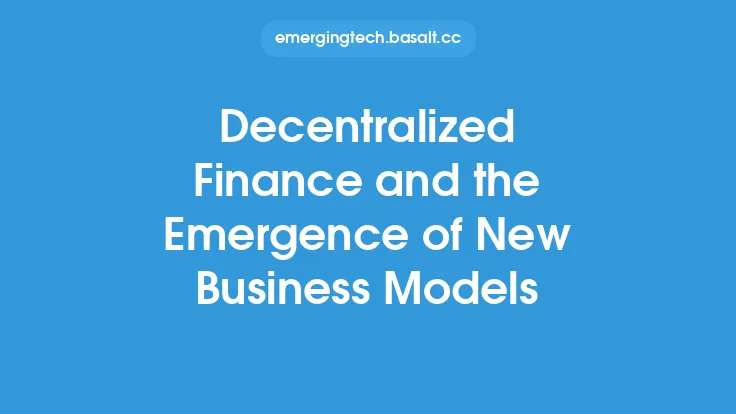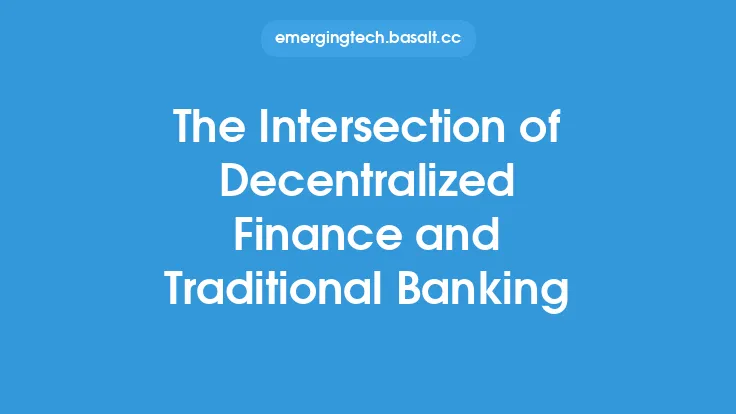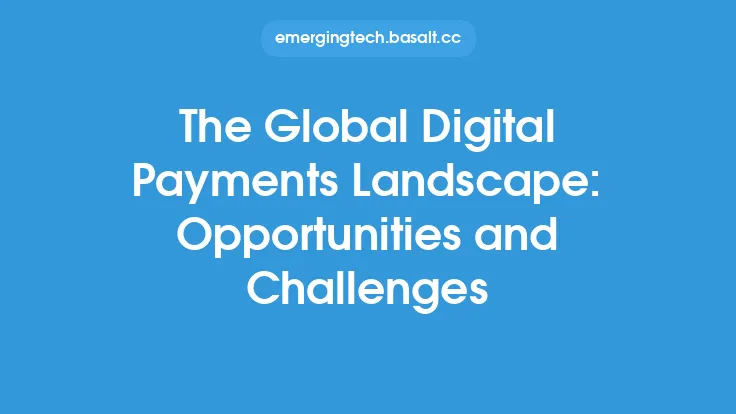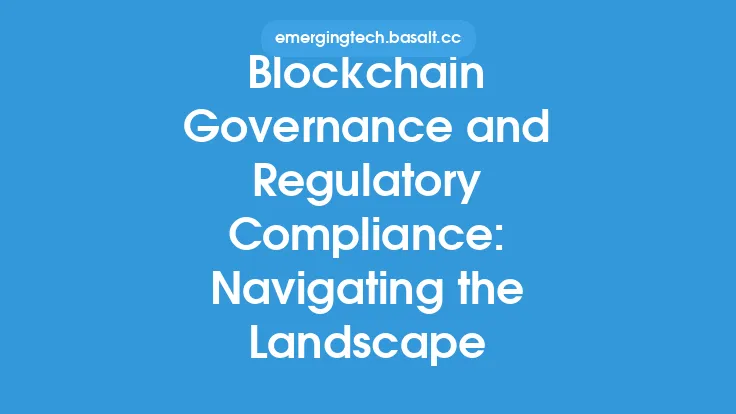The emergence of decentralized finance (DeFi) has brought about a significant shift in the way financial services are provided, with a focus on decentralization, transparency, and accessibility. However, this new paradigm also presents a complex regulatory landscape that poses both challenges and opportunities for stakeholders. Understanding the regulatory environment is crucial for the growth and development of DeFi, as it can either hinder or facilitate innovation in this space.
Introduction to DeFi Regulation
DeFi regulation is a multifaceted issue that involves various stakeholders, including governments, regulatory bodies, and industry players. The lack of clear regulations and guidelines has created uncertainty and ambiguity, making it challenging for DeFi projects to operate and comply with existing laws. Moreover, the decentralized nature of DeFi makes it difficult for regulators to apply traditional regulatory frameworks, which are often designed for centralized systems. As a result, regulators are faced with the task of creating new rules and guidelines that balance the need for innovation with the need for consumer protection and financial stability.
Key Regulatory Challenges
One of the primary regulatory challenges in DeFi is the issue of jurisdiction. DeFi projects often operate on a global scale, making it difficult to determine which regulatory framework applies. This can lead to confusion and inconsistencies, as different countries may have different regulations and laws governing DeFi activities. Furthermore, the anonymity and pseudonymity inherent in blockchain technology can make it challenging for regulators to identify and track individuals and entities involved in DeFi transactions. This raises concerns about anti-money laundering (AML) and know-your-customer (KYC) regulations, as well as the potential for illicit activities such as terrorist financing.
Regulatory Approaches
Regulatory approaches to DeFi vary widely depending on the country and region. Some countries, such as Singapore and Switzerland, have taken a more permissive approach, providing clear guidelines and regulations that support the development of DeFi. Others, such as the United States, have taken a more cautious approach, with regulatory bodies issuing warnings and guidance on DeFi activities. In some cases, regulators have also taken enforcement actions against DeFi projects that are deemed to be non-compliant with existing laws and regulations. The lack of consistency and clarity in regulatory approaches can create uncertainty and hinder the growth of DeFi.
Opportunities for Regulatory Innovation
Despite the challenges, the DeFi regulatory landscape also presents opportunities for innovation and growth. Regulators can work with industry players to develop new regulatory frameworks that are tailored to the unique characteristics of DeFi. This can involve the use of technologies such as blockchain and artificial intelligence to enhance regulatory compliance and oversight. Additionally, regulators can provide clear guidelines and regulations that support the development of DeFi, while also ensuring consumer protection and financial stability. By taking a proactive and collaborative approach, regulators can help to foster a vibrant and innovative DeFi ecosystem.
International Cooperation and Standards
International cooperation and standards are essential for creating a consistent and harmonized regulatory environment for DeFi. Regulatory bodies and industry players can work together to develop global standards and guidelines that provide clarity and consistency for DeFi projects. This can involve the development of international standards for AML and KYC, as well as guidelines for regulatory compliance and oversight. Additionally, international cooperation can help to facilitate the sharing of best practices and expertise, which can support the growth and development of DeFi.
Conclusion
The regulatory landscape of DeFi is complex and multifaceted, posing both challenges and opportunities for stakeholders. While there are regulatory challenges to be addressed, there are also opportunities for innovation and growth. By working together, regulators and industry players can develop new regulatory frameworks that support the development of DeFi, while also ensuring consumer protection and financial stability. As the DeFi ecosystem continues to evolve, it is essential to prioritize regulatory clarity and consistency, as well as international cooperation and standards. By doing so, we can create a vibrant and innovative DeFi ecosystem that benefits stakeholders and supports the growth of the global economy.





